Aquaculture
In the Aquaculture department, questions of modern process and plant technology are looked at, including biological and technological requirements as well as business management aspects. This applies in particular to trout production in plants, intensive carp rearing and warm water fish production. The forms of production that are researched include recirculation systems, pond-in-pond systems and net pens on lakes, in addition to ponds and flow-through systems.
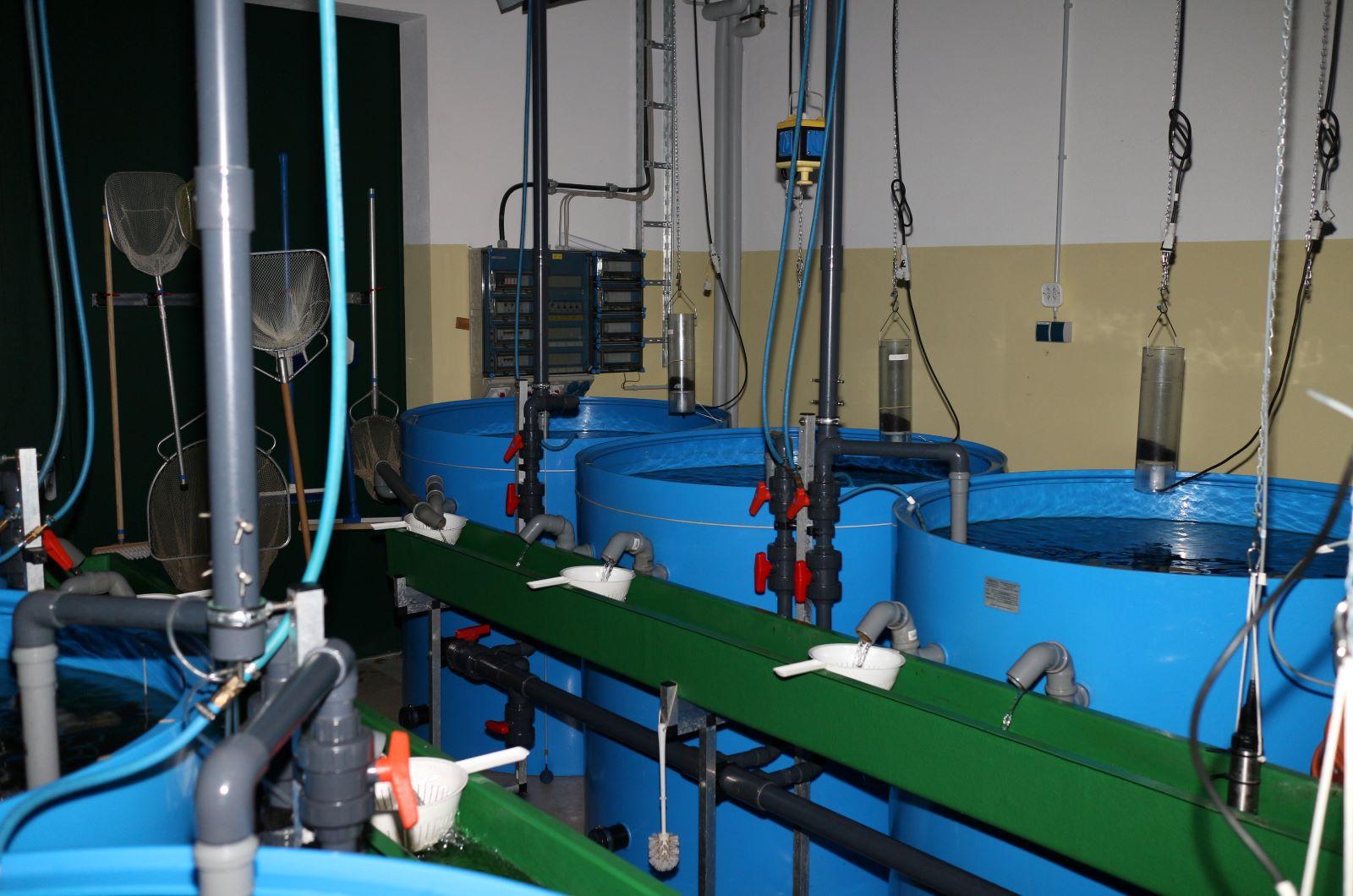
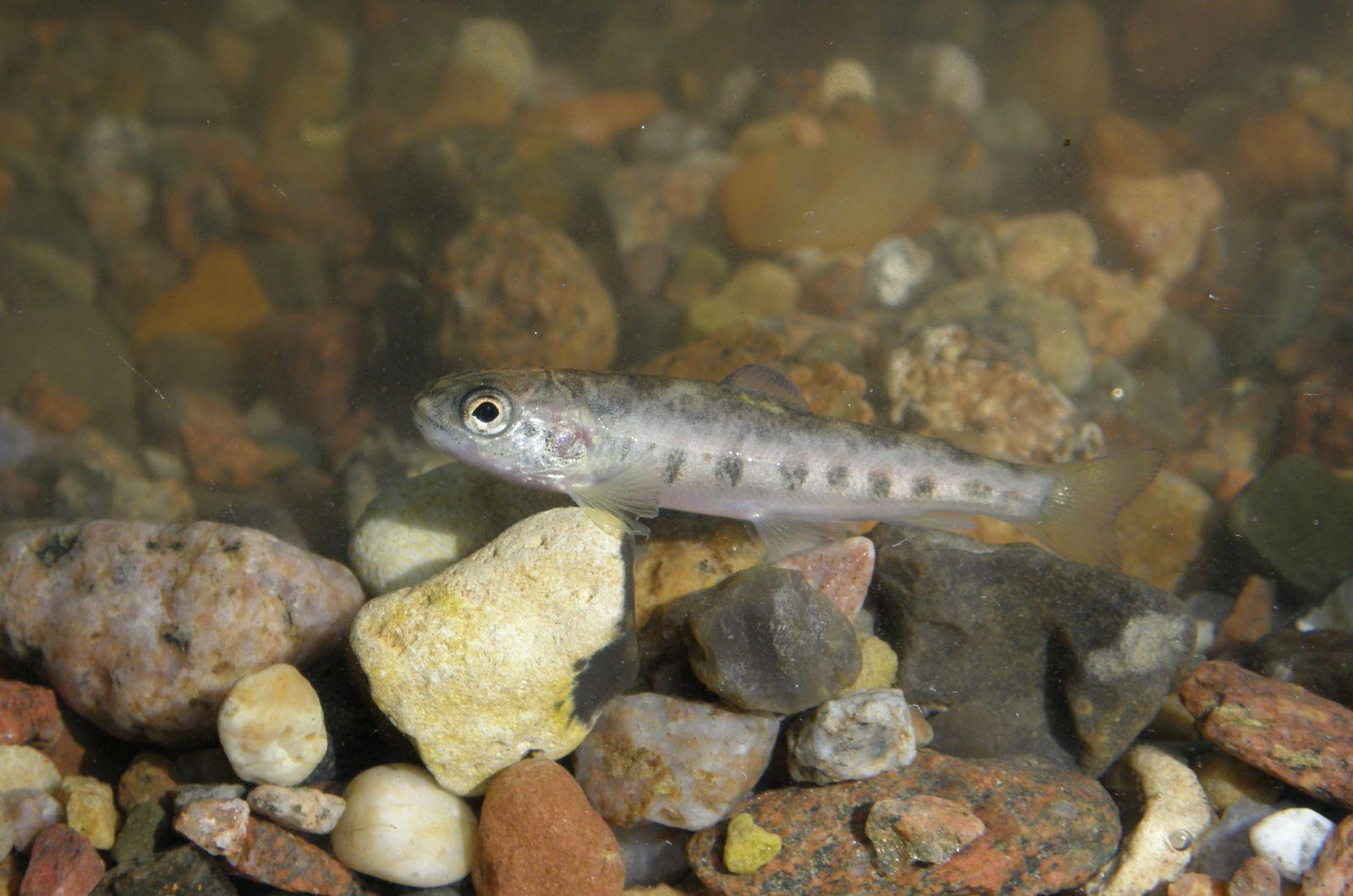
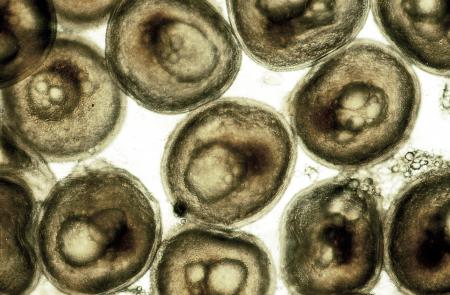
A particularly important current topic is the development and introduction of water-saving and low-emission plant technologies for trout production. At the same time, however, largely optimised husbandry conditions as well as low labour costs and an economical mode of operation must be ensured. Process-technological implementation options and adapted forms of management are to be developed here in a targeted manner. In addition, the optimisation of input, output and turnover parameters of the fish under production conditions is also aimed at. In this way, a foundation is created which enables the modelling of and upfront calculations for process and biotechnological processes.
Further, the Aquaculture department deals with a wide range of issues, such as reproduction, behaviour and growth performance in the rearing of commercial fish species at different age stages and in different husbandry environments, as well as issues relating to breeding. Protocols for the production of promising new aquaculture candidates are also being developed.
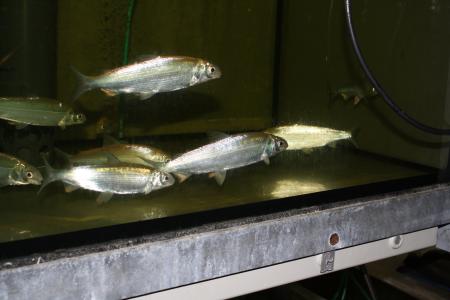
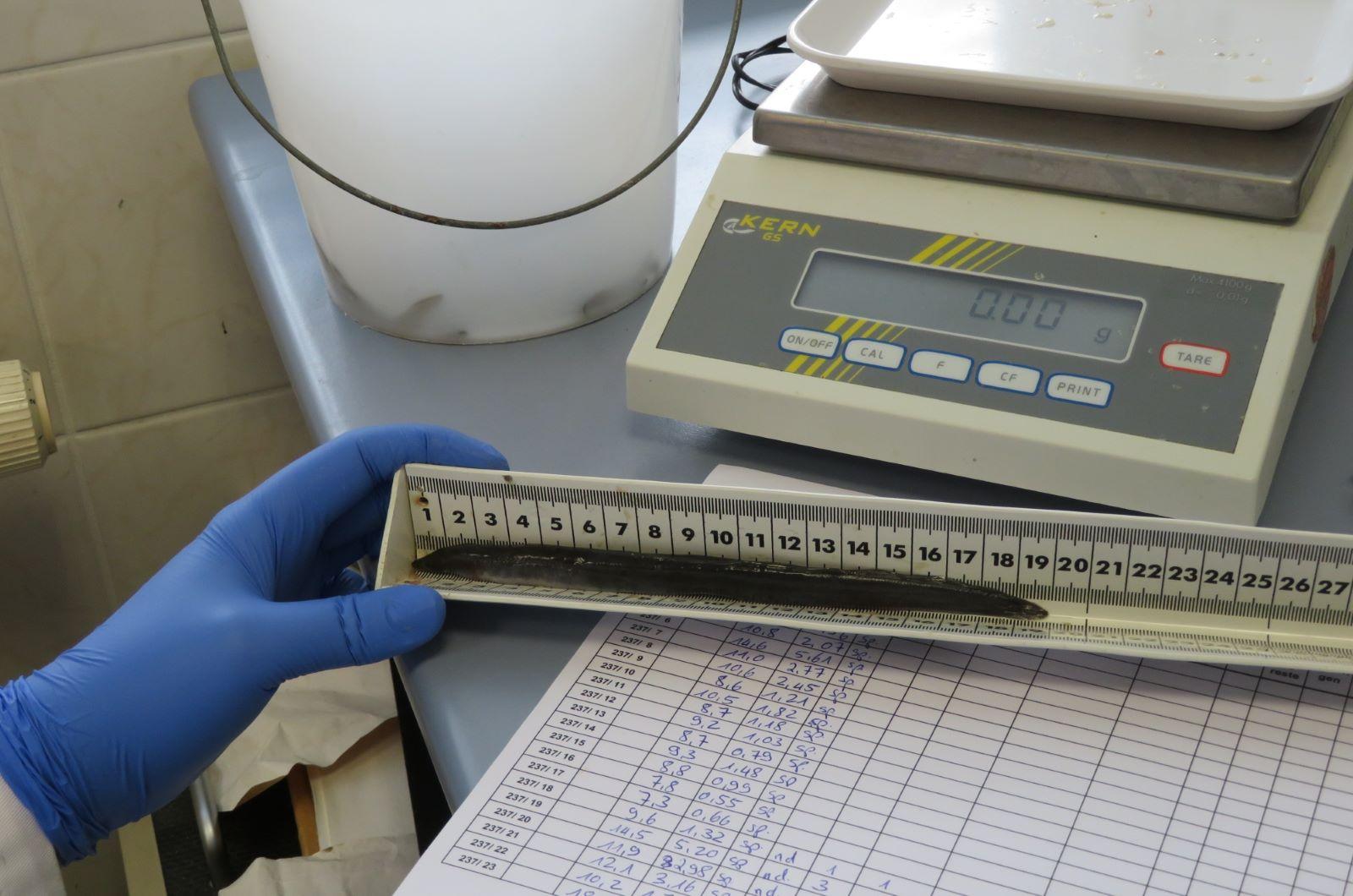
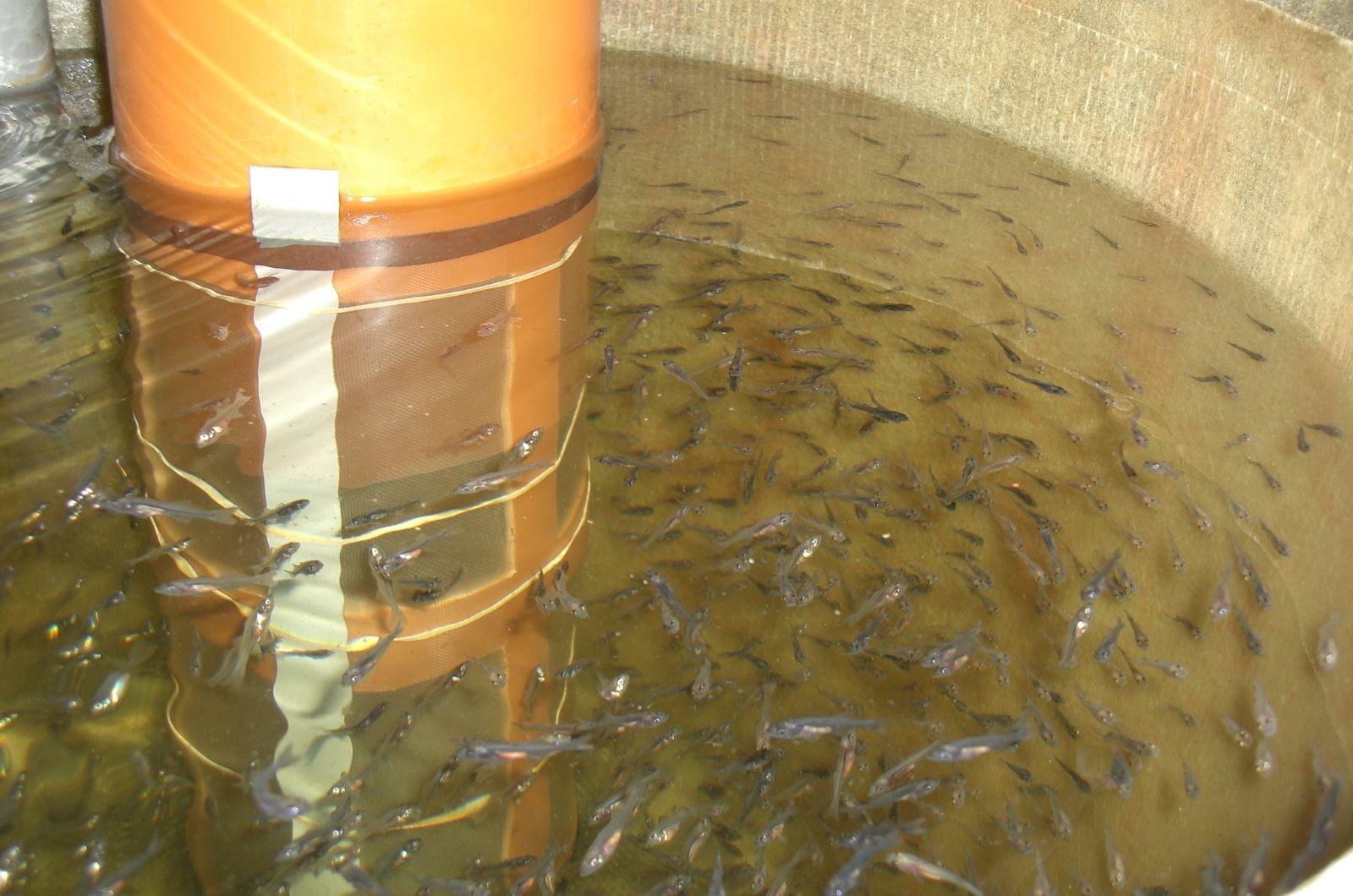
In addition to breeding, the research work includes aspects of low-stress handling, keeping, slaughtering and further processing of edible fish. In the course of this it is is a common approach and desire to create added value of the fish products bred for the consumer . Accordingly, the development of efficient and gentle rearing methods leading to an optimal quality of the fish products for the consumer is also an important goal of the research activities.




